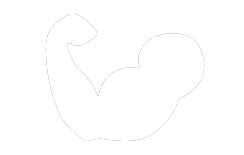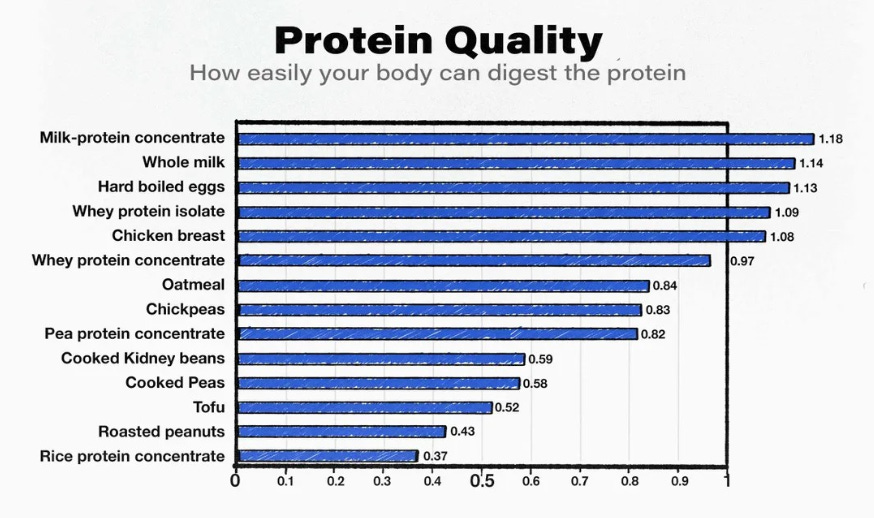· diet · 5 min read
Does Fasting Help Muscle Injuries?
You're a warrior on the fitness battlefield, pushing your limits, conquering workouts, and then bam – an unexpected setback in the form of a muscle injury.

You’re a warrior on the fitness battlefield, pushing your limits, conquering workouts, and then bam – an unexpected setback in the form of a muscle injury. Now, as you navigate the road to recovery, a burning question surfaces: Does fasting help muscle injuries? Hold onto your dumbbells, because the answer isn’t as straightforward as hitting the gym for a quick pump.
First things first, let’s talk about the basics. Fasting, the practice of abstaining from food or caloric intake for a set period, has gained attention not only for weight management but also for potential health benefits. Now, the big question is whether this age-old practice can play a role in healing those strained muscles.
The Science Behind Fasting and Muscle Repair
Fasting triggers a series of physiological responses in the body, including enhanced autophagy – the process by which damaged cells are broken down and recycled. This cleanup crew operation may contribute to the removal of cellular debris from injured muscles, creating a potentially conducive environment for healing.
However, before you start skipping meals in the hope of a speedier recovery, let’s delve deeper into the nuances of fasting and muscle injuries.
Fasting Dos and Don’ts for Muscle Recovery You’re contemplating fasting to turbocharge your muscle injury recovery, and that’s commendable. But like any fitness strategy, there are dos and don’ts you should be aware of:
The Do’s:
Intermittent Fasting: Consider incorporating intermittent fasting, where you alternate between periods of eating and fasting. This approach may support the body’s natural repair processes without plunging into extended fasting durations.
Hydration is Key: Fasting should not equate to dehydration. Ensure you stay well-hydrated during fasting periods to support overall bodily functions, including the healing of muscle injuries.
Balanced Nutrient Intake: When you do eat, prioritize a nutrient-rich, balanced diet. Adequate protein, vitamins, and minerals are crucial for muscle repair, and fasting should not compromise these essential elements.
The Don’ts:
Extended Fasting Without Guidance: Opting for prolonged fasts without proper guidance can have adverse effects on muscle recovery. Consult with a healthcare professional or nutritionist to tailor a fasting approach that aligns with your specific injury and health status.
Ignoring Individual Needs: Every body is unique, and what works for one may not work for another. Listen to your body, and if fasting leads to increased discomfort or hinders your ability to maintain an optimal nutrient intake, reconsider your approach.
Fasting as a Sole Solution: Fasting should complement, not replace, conventional methods of muscle injury management. Consult with healthcare professionals and adhere to recommended treatments, such as rest, ice, compression, and elevation (R.I.C.E).
Frequently Asked Questions (FAQs) About Fasting and Muscle Injuries
As you embark on your journey to understand the relationship between fasting and muscle injuries, a few common questions may arise:
Can fasting worsen muscle injuries?
Extended fasting without proper guidance and monitoring may potentially hinder the recovery process and lead to nutrient deficiencies. It’s crucial to strike a balance and ensure that fasting complements, rather than compromises, your body’s ability to heal.
How long should I fast for optimal muscle recovery?
The ideal fasting duration varies among individuals and depends on factors such as the type and severity of the muscle injury, overall health, and fitness goals. Consulting with healthcare professionals or nutritionists can help tailor a fasting plan that aligns with your specific needs.
Are there specific foods that enhance muscle recovery during fasting?
While fasting, focus on nutrient-dense foods when breaking your fast to support muscle recovery. Incorporate protein-rich sources, vitamins, and minerals to provide the essential building blocks for healing damaged muscles.
Can fasting reduce inflammation associated with muscle injuries?
Some studies suggest that fasting may have anti-inflammatory effects, potentially aiding in the reduction of inflammation associated with muscle injuries. However, individual responses may vary, and it’s crucial to monitor your body’s signals during the fasting process.
By addressing these common queries, you gain a more comprehensive understanding of the nuanced relationship between fasting and muscle injuries. Remember, individual circumstances play a pivotal role, and seeking personalized advice ensures a safe and effective integration of fasting into your recovery strategy.
The Verdict: Fasting and Muscle Injuries
In the realm of fitness and recovery, there’s no one-size-fits-all solution. So, does fasting help muscle injuries? The jury is still out. While there’s intriguing scientific groundwork suggesting potential benefits, it’s crucial to approach fasting as part of a comprehensive strategy.
If you’re intrigued by the idea of incorporating fasting into your muscle injury recovery plan, consult with healthcare professionals, nutritionists, or fitness experts. Tailor your approach based on your unique needs, ensuring a balance between fasting practices and the essential elements required for efficient muscle repair.
Remember, you’re on a journey to recovery, and it’s essential to navigate it with a well-informed, balanced mindset. Fasting might be a tool in your arsenal, but it’s not the sole knight in shining armor for muscle injuries. Stay mindful, stay informed, and may your road to recovery be as swift as your dedication to the gym.





